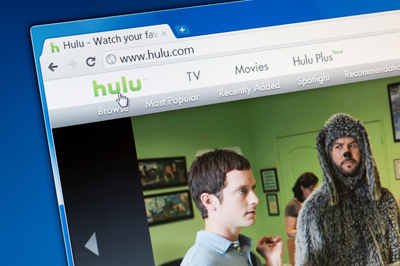Top Class Actions’s website and social media posts use affiliate links. If you make a purchase using such links, we may receive a commission, but it will not result in any additional charges to you. Please review our Affiliate Link Disclosure for more information.
UPDATE: The Hulu privacy class action lawsuit was dismissed by a California federal judge on March 31, 2015. The plaintiffs filed an appeal on April 15, 2015.
UPDATE 2: On Oct. 23, 2015, both parties voluntarily agreed to drop the appeal to the Hulu video privacy class action lawsuit
On Monday, a federal judge issued an order trimming a class action lawsuit that alleges Hulu.com, an internet-based video streaming website, violated federal privacy laws by sharing users’ viewing information with third parties.
Lead plaintiffs, which include a number of registered Hulu users, filed class action lawsuits against Hulu starting in 2011 claiming that Hulu had disclosed their viewing selections to third parties including Facebook and comScore, and also alleging that when Hulu.com disclosed their viewing selections without their consent, Hulu violated their privacy under the Video Privacy Protection Act (VPPA).
In 2011, Hulu contested the claims in the Hulu class action lawsuit, filing motions for summary judgment that argued since it was a video-streaming company, not a brick-and-mortar store, that the VPPA didn’t apply to the company. Judge Laurel Beeler dismissed the 2011 motion, pointing out when the VPPA was enacted it was for the purpose of protecting the privacy of individuals and their viewing preferences; the medium did not matter.
The company filed another motion to dismiss the Hulu class action lawsuit and U.S. District Judge Laurel Beeler agreed with Hulu in part. Judge Beeler stated in her April 28 opinion, “[t]he comScore disclosures were anonymous disclosures that hypothetically could have been linked to video watching” and “[t]hat is not enough to establish a VPPA violation.”
However, “[a]s to the Facebook disclosures, there are material issues of fact about whether the disclosure of the video name was tied to an identified Facebook user such that it was a prohibited disclosure under the VPPA,” the judge said, and “the record is not developed enough for the court to determine as a matter of law whether Hulu knowingly disclosed information or whether Hulu users consented to the disclosures.”
In her option, Judge Beeler noted that the plaintiffs sought to certify two classes in Hulu privacy class action lawsuit: the comScore disclosure class and the Facebook disclosure class. The comScore class consisted of “[a]ll persons residing in the United States and its territories who, from March 4, 2011 through Nov. 8, 2012, were registered users of hulu.com (including, but not limited to, paying subscribers, also known as Hulu Plus subscribers) and requested and/or obtained video materials and/or services on hulu.com during the Class Period.”
The Facebook disclosure class consisted of “[a]ll persons residing in the United States and its territories who, from April 21, 2010 through June 7, 2012, were registered users of hulu.com (including, but not limited to, paying subscribers, also known as Hulu Plus subscribers) and requested and/or obtained video materials and/or services on hulu.com during the Class Period.”
The judge continued by saying, “comScore gives [Hulu] ‘reports containing metrics regarding the size of the audience for programming on hulu.com,’ and Hulu uses the reports to obtain programming and sell advertising without reference even to User IDs.'” However, “Facebook collects information and processes content ‘shared by its users,’ and it provides that information to marketers when it sells them its products,” said the judge, and “Facebook shares its members’ information with marketers so that marketers can target their ad campaigns.”
Judge Beeler pointed out”[c]ertain information was transmitted from hulu.com to Facebook via the Facebook ‘Like’ button” and although “[n]o evidence has been introduced that Facebook took any actions with the cookies described above…Plaintiffs’ expert opines that Hulu’s disclosure to Facebook of cookie identifiers set by Facebook’s domain enabled Facebook to link information identifying the user and the user’s video choices to other information about the particular user.”
Judge Beeler rejected Hulu’s argument that it did not violate the VPPA because it did not disclose real names to Facebook stating “[t]he statute does not require a name…[i]t defines [Personally identifying Information] as a term that ‘includes information which identifies a person.'”
The plaintiffs are represented by Parisi & Havens LLP, KamberLaw LLC, Strange and Carpenter and the Law Offices of Joseph H. Malley
The Hulu Privacy Class Action Lawsuit is In re: Hulu Privacy Litigation, Case No. 3:11-cv-03764, in the U.S. District Court for the Northern District of California.
ATTORNEY ADVERTISING
Top Class Actions is a Proud Member of the American Bar Association
LEGAL INFORMATION IS NOT LEGAL ADVICE
Top Class Actions Legal Statement
©2008 – 2024 Top Class Actions® LLC
Various Trademarks held by their respective owners
This website is not intended for viewing or usage by European Union citizens.















